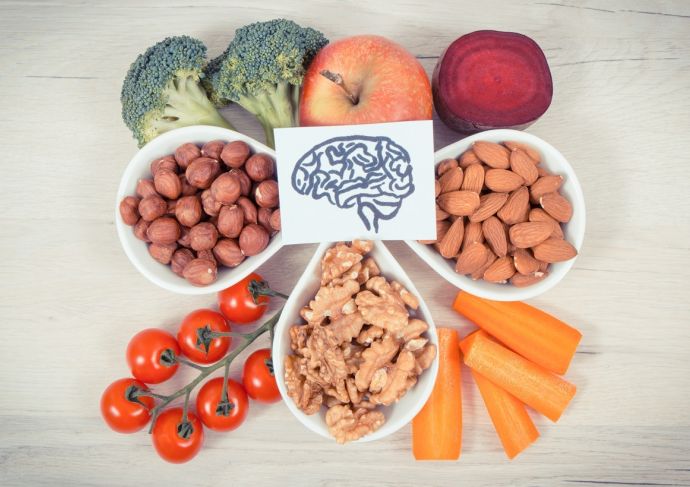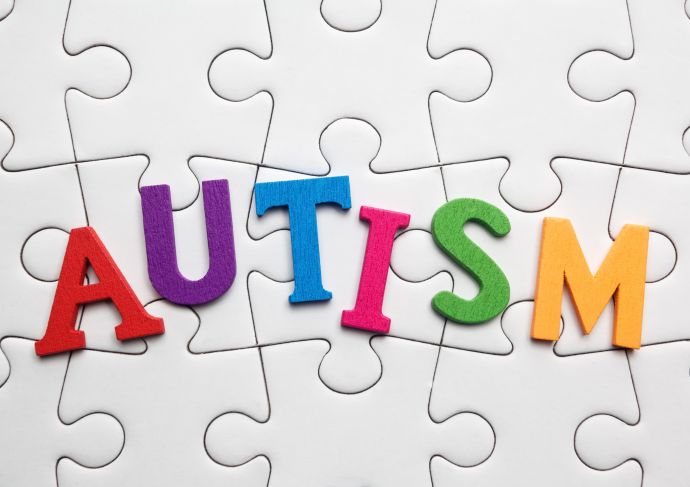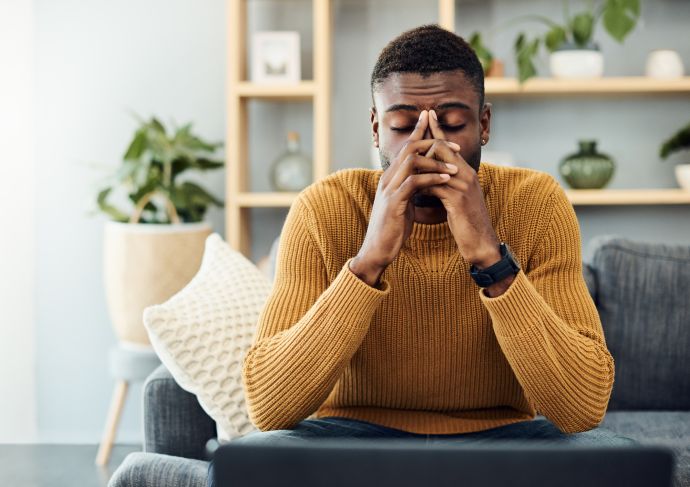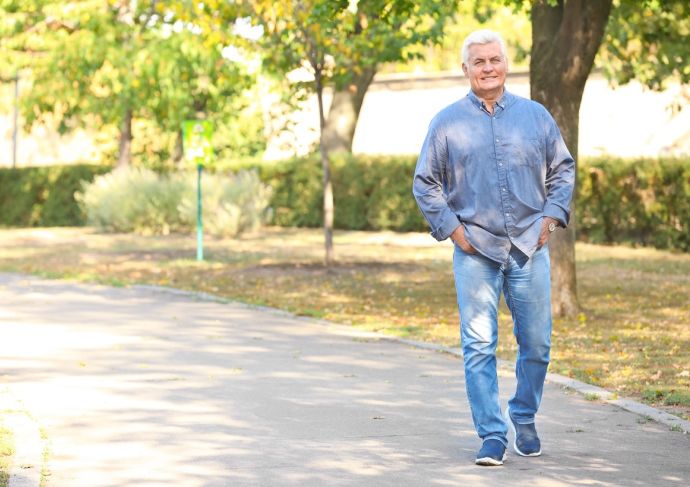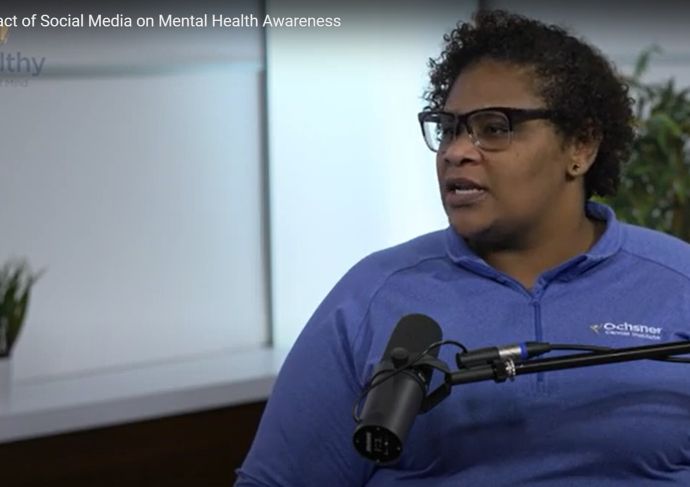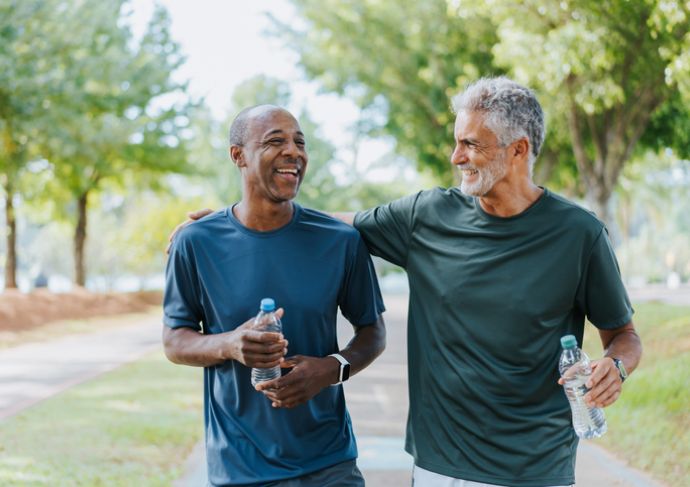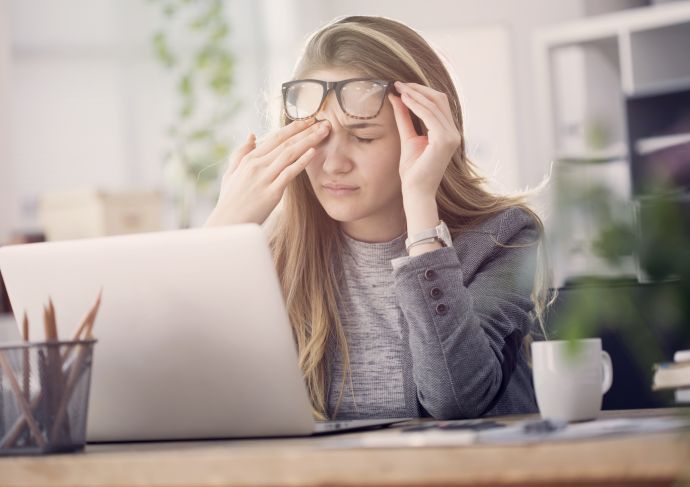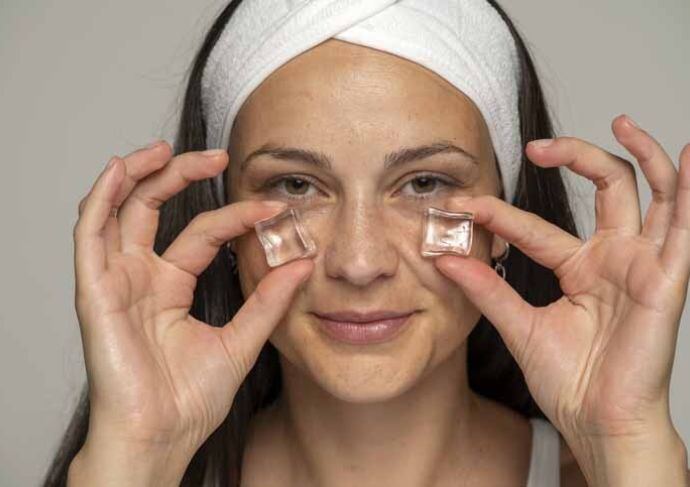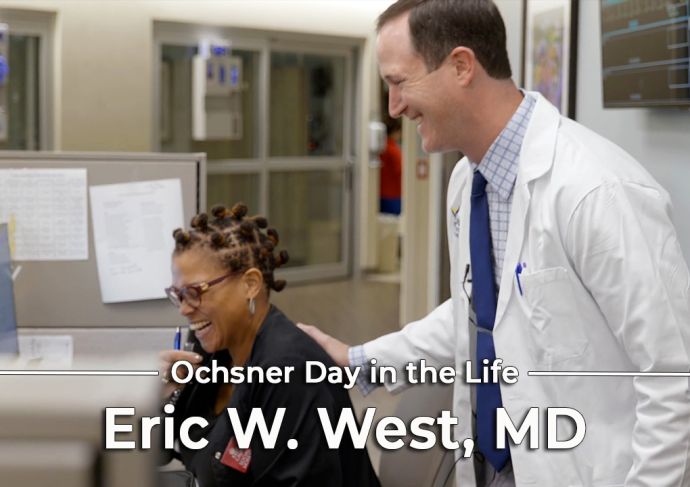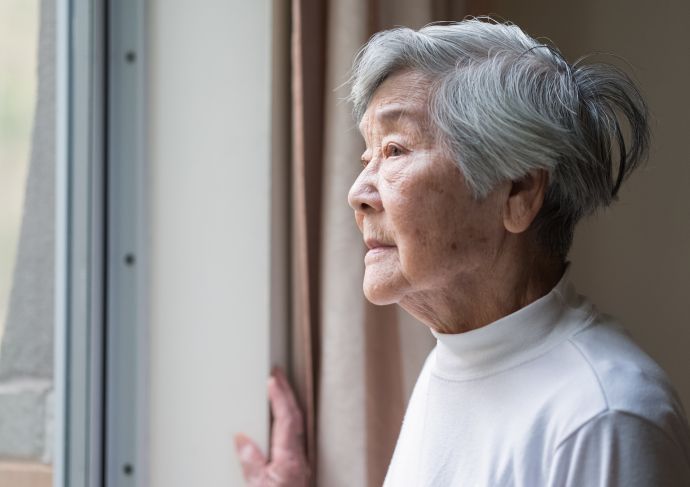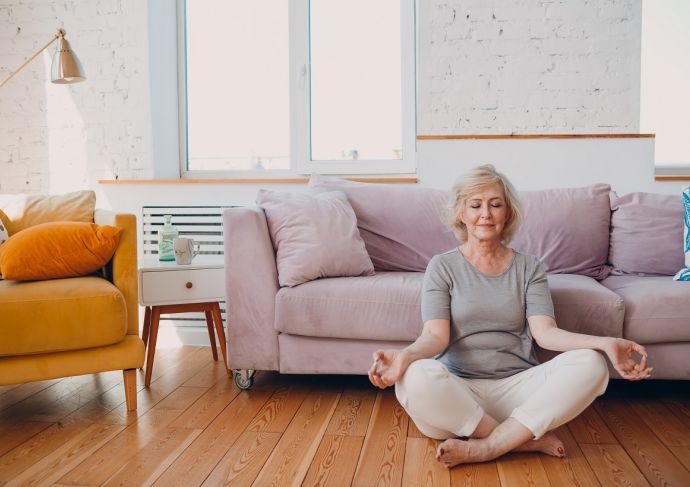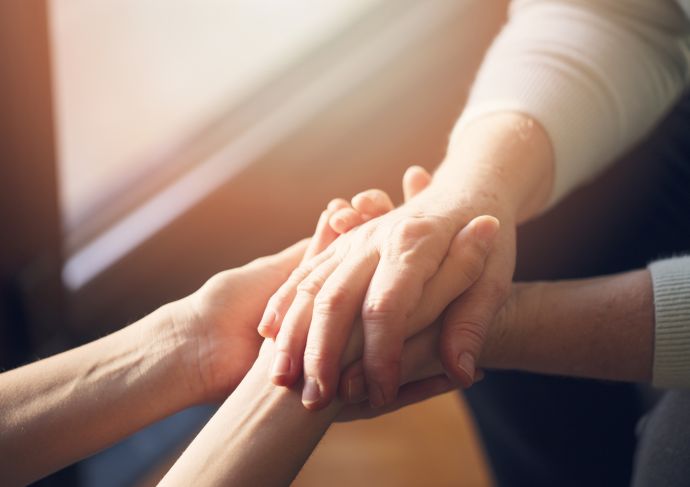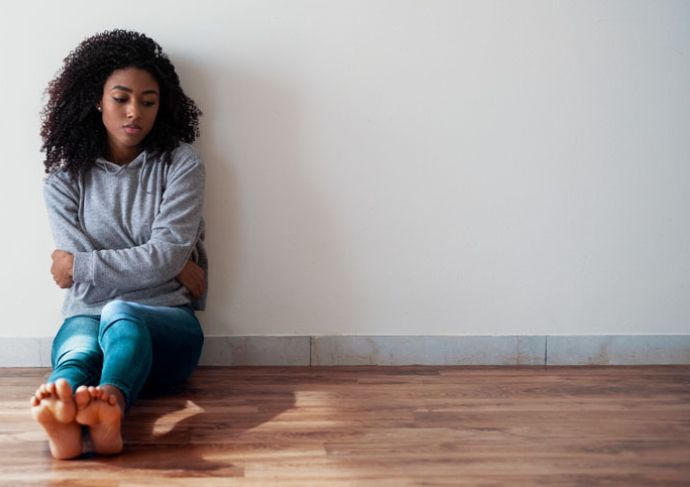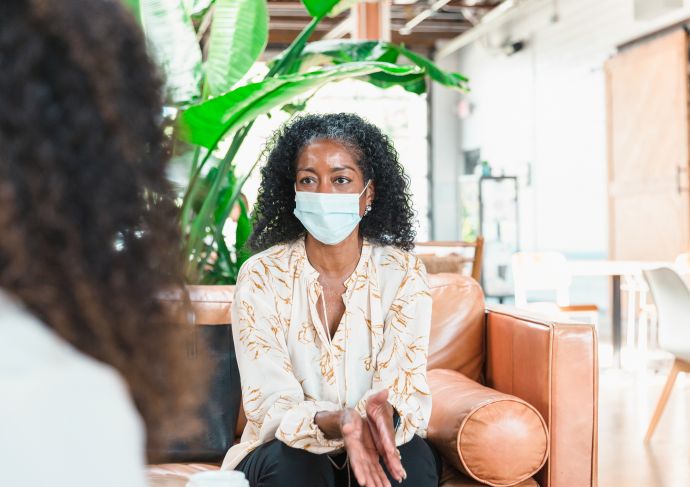-
Try these positive thinking techniques, suggested by Ochsner Digital Medicine, to improve your mental and physical health in 2026.
-
How to Prepare for Your First Behavioral Health Appointment
Feeling a bit nervous before your first behavioral health appointment? That’s completely normal. Many people feel uncertain about what to expect, especially if it’s their first time. This guide is here to help make the process feel less intimidating. -
Why Do I Have Worse Anxiety at Night? Here's How to Avoid It
Learn the causes, symptoms and strategies for managing nighttime anxiety. Regain restful sleep and improve your well-being with expert-backed insights. -
How to Handle Stress: 11 Practical Strategies
Lower blood pressure, manage weight and feel your best with our expert tips for stress management. -
The 4 Best Ways to Cope with Holiday Depression in 2025
If you're struggling with holiday depression, reach out to others, including professionals. Remember, you are not alone. Help is available. -
9 Helpful Tips for Surviving the 2025 Holidays With Your In-Laws
Whether we like our in-laws or not, feeling confined with them can lead us to feel on-edge. Here are some helpful tips to get you through the holidays,
Get our top Mental Health articles delivered to your inbox!
-
How Do I Know If I Have ADHD?
While ADHD can present challenges to people affected by it, Ochsner offers treatments that can help. -
What Does It Mean When Someone Receives Palliative Care?
Ochsner's palliative care teams work every day to make people feel better by providing support and improving the quality of life for patients dealing with serious illness. -
Mindful Eating: 5 Tips for Staying on Track During the Holidays
The holidays can present unique challenges when it comes to nutrition, but it is possible to enjoy the foods you love while fueling your body. -
10 Symptoms of Seasonal Affective Disorder and How to Treat It
Seasonal affective disorder is more common in people living farther from the equator, where there are fewer daylight hours in the winter. -
What Are the Best Ways to Cope with Stress?
Exercise, laughter, healthy food, socialization and meditation are just some of the ways we can all reduce our stress levels. -
What Are the Benefits of Adult Coloring Books for Seniors?
Looking after your mental well-being matters. For adults 65 and older, coloring is more than just fun. It’s a therapeutic way to feel calm and focused. -
What Are the Warning Signs for Suicide? A Psychiatrist Explains
Know the warning signs of suicide and learn how you can help yourself and your loved ones. -
Does My Brain Work Better When I Eat Healthier Food?
Discover how your diet impacts mental well-being through the powerful mind-gut connection. Learn about gut-brain communication and get tips for a balanced diet to support emotional health. -
What Are Signs of ADHD in Women?
ADHD can be a complex disorder that presents unique challenges to women. It’s important to seek help that can improve quality of life. -
Autism Spectrum Disorder Signs, Causes and Treatments
Learn about autism signs, causes and treatments from a developmental behavioral pediatrician at Ochsner Health. -
Mindfulness for Parents: Letting Go of Parent Guilt
Ochsner psychologist Virginia Hatch, PhD, shares mindfulness tips for parents to let go of parent guilt and reduce parent burnout. -
Mindfulness for Parents: How to Cope with Stress
Ochsner Health psychologist Virginia Hatch, PhD, shares mindfulness tips for parents on how to cope with stress and avoid burnout. -
Mindfulness for Parents: How to Practice Gratitude
Learn tips for parents on how to practice gratitude and mindfulness from New Orleans-based psychologist Virginia Hatch, PhD. -
Mindfulness for Parents: Tips to Practice Self-Care
Self-care is an important part of a person's life, but parents don't always have the time. Here are tips to practice self-care and mindfulness for parents. -
Mindfulness for Parents: Parent Burnout
Parent burnout is more common than we think. Here are ways to decrease parent burnout, prevent future burnout and rediscover your peace. -
Mindfulness for Parents: Prioritizing Self-Care
Parents oftentimes struggle to find time for themselves. Here are some ways for parents to become more mindful when it comes to prioritizing self-care. -
Navigating Stroke Recovery: 6 Valuable Tips for Caregivers in 2025
When a loved one experiences a stroke, navigating the aftermath can feel like venturing into uncharted territory. As a caregiver, you play a crucial role in their recovery journey. -
Mental Health: Before and After a Transplant
Deciding to pursue a transplant is a very personal process and can take a toll on a person’s mental health. -
Menopause and Mental Health: 7 Top Tips to Manage Mood Changes
Explore how menopause impacts mental health and learn strategies to manage mood changes, prioritize well-being and seek support for a better you. -
Social Media and Self-Diagnosing Mental Health Conditions
Psychologist Tracey Murry, PhD, says it's important to be diagnosed by a mental health professional rather than using social media. -
Behavioral Change Made Simple: Tips on Motivation and Goal-Setting
Discover how motivation and change work together to help you build better habits and achieve your goals. -
What Are the Signs of Depression in Men? Here's How to Get Help
One of the most important steps men can take to prevent depression is establishing a support system of family and friends they can rely on. -
Screen Time for Kids: 4 Things Parents Should Do
How much screen time should children have, and what are the effects? Here are answers from a licensed clinical social worker. -
How to Talk to Your Kids About Scary News: 9 Tips From a Psychologist
It’s OK to tell your child if news makes you sad, but ensure that you’re calm and collected when you do so. -
4 Physical Symptoms of PTSD Episodes and 3 'Quiet' Symptoms
Treatments for PTSD can include talk therapy and medications. For some, the symptoms subside or disappear over time. -
5 Ways to Restore Your Sense of Control When You’re Feeling Powerless
Here are five things to consider adding into our brain space to help us make sense of and manage our fears, doubts and uncertainties. -
Why Does Anxiety Cause Nausea? The Answer May Surprise You
Do you ever feel sick to your stomach when you're feeling anxious? Thomas C. Maher, PA-C, a psychiatrist at Ochsner Health, explains why. -
Is Dementia Hereditary? Is Alzheimer's Genetic?
Is dementia genetic? Evidence points to a combination of age-related changes in the brain, along with genetic, environmental, and lifestyle factors, -
Mammalian Dive Reflex: A Cool Way to Reduce Stress, Anxiety and Panic Attacks
Learning how to trigger the mammalian dive reflex can help you slow down your heart rate and manage intense emotions. -
Silent Panic Attacks: 8 Symptoms to Understand
A silent panic attack may be harder to detect by others because the person keeps their reaction internalized. -
How To Make a Healthy Drink That Improves Mental Focus
Struggling with brain fog? Learn about common causes and try our brain-boosting clarity drink, packed with cognitive-supporting ingredients. -
Can Suppressing Emotions Cause Memory Loss?
Some research has indicated that continually suppressing one’s emotions appears to be associated with an increased risk of dementia, -
Ochsner Health Psychiatrist: Why Careers in Mental Health Matter
Discover how Dr. Eric West’s passion for mental health and commitment to helping others led him to join our psychology team at Ochsner. -
Transcranial Magnetic Stimulation (TMS) Therapy for Depression: How It Works
Transcranial magnetic stimulation therapy, or TMS, may be able to help those who find that other treatments for depression aren’t effective. -
Election Stress and Anxiety in 2024: How To Cope
Reducing your stress about the 2024 presidential elections could be as easy as taking a social media break. -
High-Functioning Anxiety; 6 Top Symptoms in 2024
People who struggle with high-functioning anxiety tend to not only be fully functional, but often highly successful. -
Top 10 Early Signs of Dementia You Need to Know
Early diagnosis and treatment is crucial in slowing the progression of dementia. -
Signs Your Child May Be Struggling with Their Mental Health
Here are things to look out for that could signal your child is struggling with mental health and how to best address it. -
Dysthymia (Persistent Depressive Disorder) Versus Major Depression
Dysthymia, or persistent depressive disorder, is characterized by long-lasting, low-level depression. It is not as severe as major depression. -
Schizotypal Personality Disorder: What Are the Symptoms?
People with schizotypal personality disorder typically have trouble relating to people and do not have close friends. -
13 Symptoms of Generalized Anxiety Disorder
Roughly 6.8 million adults, or 3.1% of the U.S. population, are affected by generalized anxiety disorder. Here are the symptoms and treatments. -
9 Ways to Cope With Grief and Loss During the Holidays
Experiencing loss during the holidays? Give yourself permission to not define yourself by your ability to fit in with the spirit of the season. -
What Do Piano Playing and Rheumatology Have in Common?
Chad Hille, MD, is a rheumatologist and a piano player. In other words, he understands the art and science of the human hand. -
What Are 7 Depression Scales Used to Diagnose Adult Patients?
Healthcare professionals have tools at their disposal to help determine the severity of a patient’s depression symptoms. -
Could My Memory Lapses Be Alzheimer's Disease?
Alzheimer’s disease is the most common cause of dementia in older adults, but it is not the only cause. -
10 Best Strategies for Helping a Loved One with Alzheimer’s Disease
One tip? Maintain a routine. Patients with Alzheimer's benefit from having a predictable environment. -
8 Benefits to Beginning Meditation in 2023
One of the most important things you can do for yourself is to meditate. It helps you learn to become more aware of your emotions and physical body. -
5 Top Tips for Caring For a Loved One With Dementia
Caring for a loved one with dementia can be challenging. We’ve created a list of 5 things to keep in mind as a caregiver. -
5 Great Tips on Where to Start with Self-Care
Self-care does not have to be luxurious, glamorous or fun. Self-care can be all these things, but it can also be in the everyday mundane things that make our life better. -
Why Is Excessive Alcohol Use a Danger to Men’s Health?
This blog will dive into the potential dangers of excessive alcohol use, specifically concerning men's health. -
4 Strategies for Black Mothers to Protect Mental Health
Maternal mental health is a topic that is slowly gaining more traction in the healthcare community. Black mothers are still very much underserved. If you are a Black mother, here are some tools to remember. -
Decline in American Social Life Leading to Loneliness Epidemic
Research shows that loneliness has the same effect as 15 cigarettes a day in terms of health care outcomes and health care costs. -
How Do I Stay Calm and Prepared During Hurricane Season?
While some tension during hurricane season is inevitable, being aware of your anxiety is the first step to getting a healthy perspective on the situation. -
Why Are More College Students Struggling with Mental Health?
Surveys show college-aged people had the highest prevalence of mental illness compared with older adults. -
The Health Benefits of Helping Others on GiveNOLA Day 2023
Did you know charitable work can lower blood pressure and stress levels. Here are some of the ways that you can get involved. -
9 Potential Symptoms of Borderline Personality Disorder
Borderline personality disorder severely impacts a person’s ability to regulate their emotions. -
What Are the Top Symptoms of Anxiety in 2023?
The primary difference between worrying and anxiety is the impact each has on your life. -
How Do I Know if I'm Having a Panic Attack?
In a classic panic attack, a person is going about their normal daily activities when they suddenly experience a deep feeling of fear, anxiety or impending doom. -
5 Best Tips to Manage Postpartum Depression During the Holidays
For those struggling with postpartum depression or anxiety, the holidays can add an extra layer of pressure to an already overwhelming time. Here are five tips to make your holiday season a little less stressful and more manageable. -
How Mindfulness and Gratitude Can Improve Your Well-Being
What is mindfulness? Mindfulness is a practice that enables us to experience life from a place of kindness and compassion. -
What is #GivingTuesday?
GivingTuesday was created to promote charitable seasonal giving and to give charitable activities their own special day. -
7 Worst Habits for Your Brain
Did you know sitting slows brain function? When you sit, you are not allowing your muscles to pump fresh blood, oxygen and good chemicals to your brain. -
The Golden Years - Live Your Best Life 65 and Up
Looking to live life to the fullest? Olders adults should stay active, engage their minds and eat nutritious foods to live healthier -
What Is the Difference Between Bipolar1 and Bipolar2?
One key difference: People with bipolar 1 have at least one episode of mania in their lifetime; bipolar 2 is a milder disorder. -
Top Signs of Schizophrenia in Women
Schizophrenia is treatable. Medications and psychotherapy can help people manage symptoms and can often lead to remission. -
Does Schizophrenia Get Worse as You Age?
Schizophrenia is a serious mental illness that affects how a person thinks, feels, behaves and relates to reality. But can it worsen with age? -
6 Best Ways to Remember Where You Parked Your Car
Stop multitasking. If you don't use conscious awareness when you park your car or place your cell phone down on a table, you later will have to actively search to find them. -
Can My Mental Health Condition Be Passed Down Genetically?
If you've ever struggled with mental health, you might be wondering if mental health conditions can be passed down genetically. We have answers. -
The Top Signs of Depression in Women: What to Watch Out For
Depression is more common among women than men, likely due to certain biological, hormonal and social factors that are unique to women. -
Why Does ADHD Have a Strong Connection to Depression?
Depression and ADHD can have some common symptoms, although the reason for those symptoms may be different. -
How Important is Mental Health for Student Athletes?
Student athlete mental health is just as important as physical health. Learn how to help them cope with the pressure to perform. -
Perinatal Depression: How Can I Feel Better?
Perinatal depression is a mood disorder that occurs during pregnancy or in the first year after childbirth. With the proper treatment, most women will feel better, and their symptoms will subside. -
How Can I Take Care of My Mental Health?
Wellness and self-care may seem like buzzwords, but they are the mental health equivalent of washing hands to avoid contamination or infection. -
Maternal Mental Health: Why It Matters
Many new moms experience the baby blues, while still others suffer from postpartum depression. Learn how to recognize the symptoms and what to do next. -
Suicide Prevention in Men
If you or someone you are with is in a suicidal crisis situation, immediately call a suicide prevention hotline. The National Suicidal Prevention Hotline is 1-800-273-8255. -
Eating Disorders in Men
Need help? Call the National Eating Disorders Association helpline at 1-800-931-2237. -
8 of the Top Reasons to Do Yoga
One study found that a consistent yoga practice improved depression and an increase in serotonin levels. -
What Is PTSD?
PTSD, or posttraumatic stress disorder, originally was diagnosed only in soldiers returning from war. That's changed. -
The Definition of Depression
Clinical depression is very different from feeling bummed out. The pain is deeper, more intense. -
How to Deal With a Broken Heart
Sooner or later, we all must experience getting our hearts broken. While time heals all wounds, it doesn’t help when you are in the thick of a heartbreak. -
Benefits of Weighted Blankets: Do They Help with Sleep?
The deep pressure stimulation provided by the weighted blanket during sleep can help reduce pain, lessen anxiety and help improve moods. -
Why Do I Feel Sad?
Did you know sadness and depression aren't the same thing? Sadness comes and goes. Depression comes and stays. -
How to Help Someone Who Is Having a Panic Attack
Panic attacks typically go away in about 30 minutes, but that half hour can be tough. Here's how to calm the situation. -
6 Reasons to Talk to a Therapist
A popular way to address and manage mental health issues is talk therapy (also known as psychotherapy). Here are five common reasons to see a therapist. -
Can Meditation Help My Mental Health?
Meditation can help with common mental health struggles including stress, anxiety and depression. -
Exercises to Relieve Stress and Anxiety
Whatever you find, discover what is fun and playful for you to do; this will make you want to continue doing it and even master it! Even gardening or dancing will help reduce anxiety and depression. -
When a Loved One is Diagnosed with Multiple Sclerosis
While caring for your loved one with multiple sclerosis, don't forget to take care of yourself. -
How to Deal with Occupational Burnout
Burnout doesn't happen overnight. It's the result of a long period of increasing stress at work that isn't being managed. It is important to recognize the signs of burnout so you can help mitigate these feelings. -
7 Surprising Benefits of Yoga for Men
Think yoga is just for women? Think again. Here are seven ways a regular yoga practice can benefit men.By Mark Berger -
Boost Your Energy in Less Than a Minute
Studies have shown that cardio exercise helps to increase well-being and mental health. Here’s the best part - You don’t need to do a long or intense workout to relieve stress and anxiety.By Robin Barnes















